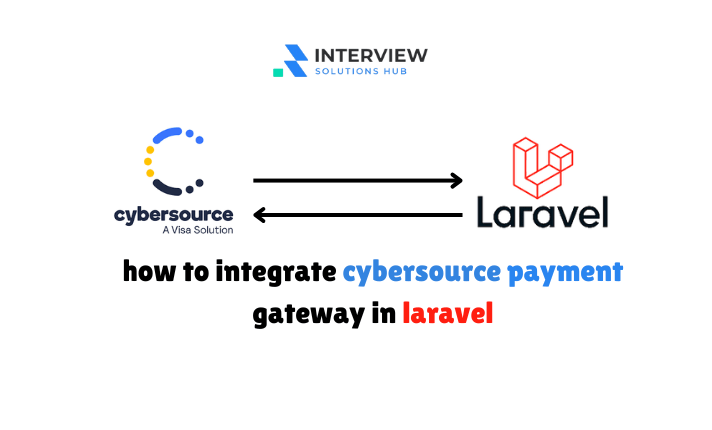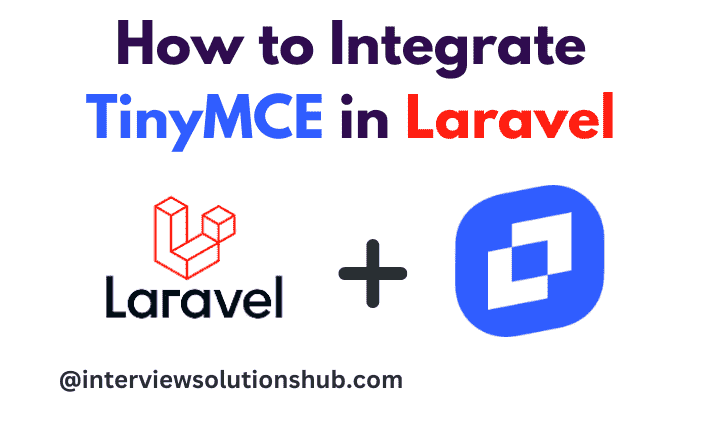The Future of SEO in a ChatGPT-Dominated World: What Happens If Search Engines Die?
Search engine optimization (SEO) has long been an important component of digital marketing strategies, dictating how businesses and content creators structure their online presence to increase visibility on platforms such as Google, Bing, and Yahoo. But what if this fundamental aspect of the internet landscape suddenly became obsolete? With the rise of AI-powered technologies like ChatGPT, some believe that traditional search engines will become obsolete. This blog looks at the implications for SEO if AI like ChatGPT "kills" search engines.

Understanding the Current SEO Landscape
To understand how the future of SEO might unfold, you must first understand what SEO is and why it has been so important. SEO is a set of strategies and practices that aim to increase a website's visibility on search engine results pages (SERPs). The higher a website ranks, the more likely it is to receive traffic.
Key elements of SEO include:
- Keyword research: involves identifying the words and phrases that potential customers use when searching for products or services.
- On-page SEO is the process of optimizing individual pages to rank higher and generate more relevant traffic, which includes elements such as meta tags, content quality, and internal linking.
- Off-Page SEO involves improving a website's reputation and authority through activities such as backlinking.
- Technical SEO entails ensuring that a website meets search engines' technical requirements, such as mobile friendliness, site speed, and secure connections.
These components work together to help search engines properly index content and serve relevant results to users. However, as AI models like ChatGPT gain popularity, we may see a significant shift in how people access and consume online information.
Artificial Intelligence and Conversational Agents
ChatGPT and similar AI models represent a new paradigm for digital information retrieval. Unlike search engines, which only provide lists of links to information, AI-powered conversational agents can synthesize data into coherent, contextually relevant responses.
How ChatGPT Works
ChatGPT uses massive datasets and sophisticated natural language processing (NLP) algorithms to understand and generate human-like text. It can answer questions, make recommendations, summarize articles, and even generate original content. This ability to provide direct answers without requiring users to navigate through multiple pages could have a significant impact on how people seek information online.
The implications for traditional search engines
If ChatGPT and similar AI models become the primary tools for online information retrieval, the need for traditional search engines may decrease. Users could avoid search engines entirely, instead opting for AI-generated answers that are quick, concise, and easy to digest.
This change could have significant implications for SEO.
- Reduced Traffic to Websites: As users become accustomed to receiving direct responses from AI, search engine traffic to websites may decline significantly. This reduction would call into question SEO's primary goal of driving traffic to websites.
- Changes in Content Strategy: If AI is synthesizing information from multiple sources, the emphasis may shift from driving traffic to establishing authority and trustworthiness so that AI models can reference a website's content.
- Altered Monetization Models: As direct visits to websites decline, traditional monetization strategies such as ad impressions and affiliate marketing may suffer, forcing businesses to explore new revenue models.
The Future of SEO: A Shift to AI Optimization?
SEO will not disappear as AI evolves; rather, it will transform. Here are a few ways SEO can adapt to a world dominated by AI, such as ChatGPT.
1. Optimizing for AI interactions.
Understanding how to make AI-friendly content will be critical in a future where AI-driven platforms dominate. Websites may need to optimize for AI platforms in the same way that they do for search engines.
- Semantic Optimization: Content creators must ensure that their content is easily understood by AI models. This could entail focusing more on context and semantics rather than just keywords. AI models excel at understanding nuanced language, so content should be well-organized and comprehensive.
- Conversational Tone: Because users may interact with AI through conversational queries, content may need to be more conversational in tone in order to match how users naturally speak and ask questions.
2. Authority and trustworthiness.
With AI synthesizing information from across the web, establishing authority will become even more critical. AI models are more likely to pull information from sources that are seen as trustworthy and authoritative.
- Building Authoritative Content: Content that is detailed, well-researched, and backed by data or expert opinion is more likely to be referenced by AI.
- Reputation Management: Managing online reputation will be essential. Businesses will need to ensure that their brand is associated with quality and reliability across all digital touchpoints.
3. Structured Data and Markup
Structured data helps search engines understand the content of a webpage, and it will likely play a similar role with AI.
- Schema Markup: Using schema markup and other structured data formats can help AI models better understand the content and context of a webpage. This can increase the likelihood that a website's information will be used in AI-generated responses.
4. Content Fragmentation
Instead of optimizing whole pages, future SEO strategies might focus on content fragments or "snippets." This approach involves creating highly specific, concise pieces of content that answer particular questions.
- Micro-Content Strategies: Creating micro-content or snippet-friendly content can help ensure that a website’s information is more likely to be used by AI to answer user queries.
- FAQ Pages: More businesses might focus on creating comprehensive FAQ pages that address a wide range of potential user questions in a concise manner.
5. Voice Search and Conversational AI
With the rise of voice assistants and conversational AI, optimizing for voice search will become increasingly important. This optimization involves focusing on natural language and long-tail keywords that reflect how people speak rather than type.
- Conversational Keywords: Understanding how users speak and structuring content around conversational phrases will be crucial.
- Voice-Friendly Content: Ensuring that content is easily accessible to voice search technologies can help maintain visibility in a landscape increasingly dominated by voice interactions.
6. User Experience (UX) Focused SEO
While traditional SEO has always emphasized user experience, the rise of AI will amplify this focus. AI models like ChatGPT are designed to enhance user experience by providing direct and accurate responses.
- Speed and Accessibility: Websites must ensure that their pages are fast-loading and accessible to all users, as AI models will likely prioritize content that aligns with user-centric principles.
- Mobile Optimization: With more users accessing information through mobile devices and voice search, ensuring a seamless mobile experience will be more critical than ever.
7. Content Ownership and Data Privacy
As AI becomes more ingrained in content consumption, issues around content ownership and data privacy will emerge.
- Content Attribution: Ensuring that content is correctly attributed to its original source will be vital in a landscape where AI aggregates information from multiple sources.
- Privacy Concerns: AI-driven platforms must navigate data privacy concerns, especially as they collect and process vast amounts of user data to provide personalized experiences.
Monetization in a Post-Search Engine World
If traditional search engines were to be overshadowed by AI, the impact on monetization strategies would be significant. Here are some potential scenarios:
1. Direct Monetization Through AI Platforms
Businesses might need to find ways to monetize directly through AI platforms rather than relying on website traffic. This could include:
- Sponsored Answers: Just as companies currently pay for sponsored listings on search engines, they could pay for sponsored answers or highlighted responses within AI platforms.
- Subscription Models: Offering premium content or services directly through AI platforms could become more prevalent as a way to maintain revenue streams.
2. Affiliate and Partnership Models
Partnerships and affiliate marketing could still play a role but would need to adapt to the new environment.
- Affiliate Marketing Evolution: Affiliate marketing might evolve to be more integrated within AI responses. For example, AI might directly recommend products or services, and businesses could earn revenue through these recommendations.
- Branded Content: Creating branded content that AI models frequently reference could become a form of passive income if businesses can establish themselves as authorities in their niches.
**3. AI-Driven E-commerce Integration
E-commerce businesses could see a shift in how they attract customers, with a more direct integration into AI platforms.
- AI-Powered Shopping Assistants: AI could act as shopping assistants, directly recommending products and services based on user queries. Businesses would need to ensure their products are well-represented within these AI ecosystems.
- Dynamic Pricing and Personalized Offers: AI can offer personalized recommendations and pricing, creating opportunities for businesses to tailor their offerings more precisely.
4. Enhanced User Engagement and Retention
In a world where traditional traffic sources may dwindle, maintaining strong user engagement and retention will be crucial.
- Community Building: Fostering strong communities around brands and content can help maintain engagement and ensure a loyal user base, even if search engine traffic decreases.
- Interactive Content: Creating interactive and immersive content experiences that keep users engaged and returning can help mitigate the impact of reduced traditional traffic.
Challenges and Ethical Considerations
As we navigate this potential future, several challenges and ethical considerations will need to be addressed:
**1. Content Accuracy and Bias
AI models are only as good as the data they are trained on. Ensuring content accuracy and minimizing bias will be critical challenges.
- Ensuring Accuracy: Content creators will need to focus on providing accurate, well-researched information, as misinformation could easily spread through AI platforms.
- Addressing Bias: AI models can inadvertently perpetuate bias, so businesses must be aware of these risks and work to mitigate them.
2. Data Privacy and Security
With AI platforms collecting vast amounts of user data, ensuring data privacy and security will be paramount.
- Compliance with Regulations: Businesses must ensure they comply with data privacy regulations such as GDPR and CCPA, especially as data collection becomes more integral to AI-driven strategies.
- Transparent Data Practices: Being transparent about data collection and usage will be crucial to maintaining user trust.
3. Dependency on AI Platforms
Relying heavily on AI platforms could create new forms of dependency and risk for businesses.
- Platform Dependency: Just as some businesses currently depend heavily on search engines for traffic, future businesses could become overly dependent on AI platforms, creating risks if those platforms change their policies or algorithms.
- Diversifying Traffic Sources: Ensuring a diversified approach to traffic and user acquisition will be important for mitigating these risks.
The Role of Human Expertise in an AI-Driven World
Despite the rise of AI, human expertise will remain invaluable. While AI can synthesize information and provide quick answers, it lacks the nuanced understanding, empathy, and creativity that human experts bring.
1. Human-AI Collaboration
SEO strategies in an AI-dominated world will likely involve close collaboration between human experts and AI technologies.
- Augmenting Human Expertise: AI can augment human expertise by handling data analysis, trend spotting, and automation, allowing humans to focus on strategic decision-making and creative content creation.
- Ethical Oversight: Human oversight will be essential in ensuring that AI-driven content strategies are ethical, unbiased, and aligned with broader business goals.
2. Creativity and Innovation
Humans will always excel in areas requiring creativity and innovation, which are crucial for building unique, engaging content that resonates with audiences.
- Storytelling and Engagement: While AI can generate text, humans will continue to play a key role in crafting compelling narratives and engaging storytelling that captivates audiences.
- Brand Differentiation: Businesses can differentiate themselves through creative strategies that leverage the strengths of both human expertise and AI technology.
Conclusion: A New Era of SEO and Digital Marketing
As AI evolves and threatens to eclipse traditional search engines, the future of SEO will be defined by significant transformation rather than extinction. Businesses and content creators will need to change their strategies, focusing on optimizing for AI interactions, establishing authority, improving user experience, and investigating new monetization models.
While the challenges and ethical concerns are significant, the opportunities for innovation and growth are also promising. Businesses can thrive in the new era of SEO and digital marketing by embracing AI's potential while maintaining a strong foundation of human expertise and creativity.
The future of SEO is not about choosing between AI and traditional search engines, but rather about combining the two into a cohesive, forward-thinking strategy that takes the best of both worlds. As we move into this exciting new chapter, those who adapt and innovate will be well-positioned to lead in the digital landscape of tomorrow.

.png)
.png)

.png)


.png)
0 Comments
Like 1